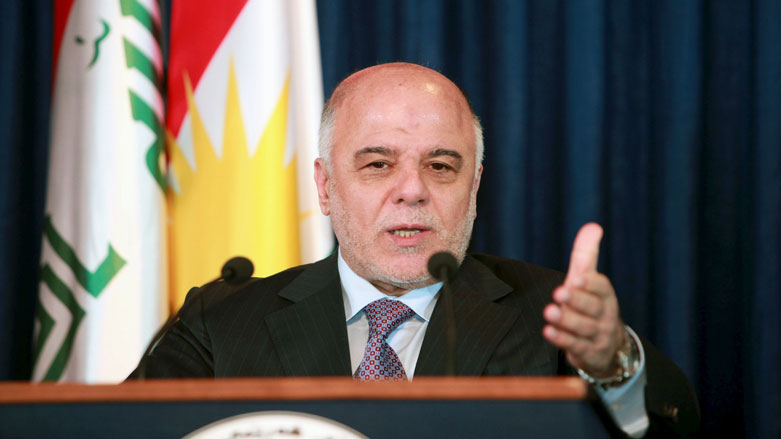Iraqi Prime Minister hails cooperation with KRG

WASHINGTON DC, United States (Kurdistan24) – On Monday, Iraq’s Prime Minister Haidar al-Abadi became the first Arab leader to meet with US President Donald Trump. Other senior US officials, including Secretary of State Rex Tillerson, attended the meeting.
On the Iraqi side, those present included Dr. Fuad Hussein, Chief of Staff to Masoud Barzani, President of the Kurdistan Regional Government (KRG).
In brief remarks following the meeting, Trump emphasized that the “main thrust” of US efforts in the region was “to get rid of ISIS.” The issue of Iran had also come up in the talks, he revealed. “One of the questions I did ask is why did President Obama sign that agreement with Iran, because nobody has been able to figure that one out,” the President said.
Subsequently, Abadi spoke at the US Institute of Peace (USIP) and hailed a new era in Baghdad’s ties with Erbil.
“We have established a very good working relationship, which has not happened in the history of Iraq,” the Prime Minister said. “For the Iraqi military to fight alongside the Peshmerga and vice-versa,” this has produced “a mutual trust, which has never been seen before,” he affirmed.
Acting State Department Spokesperson, Mark Toner, explained that a basic US goal in the meetings with the Iraqi Prime Minister and his delegation was “to encourage” Iraq “to take the necessary steps to prevent the reemergence of the Islamic State (IS.)”
Toner praised Baghdad’s efforts in fighting IS, but added, “What comes next is another aspect of ensuring that [IS] doesn’t come back, and that’s dealing with economic [and] political reforms.”
Toner declined, however, to elaborate on the nature of the reforms the US seeks—when Kurdistan24 asked him for further details.
Nor did Abadi provide any insights in his address to the USIP. Asked if he would support the creation of a semi-autonomous district in the Nineveh Plains, he said, “We should be inclusive,” but “I don’t think that you protect yourself by having partition from your neighbors.”
Similarly, when asked what Baghdad would do, if the Kurdistan Region proceeds with plans to hold a referendum on independence and it is approved, Abadi merely chuckled and said, “We’ll discuss it then.”
Abadi praised the recent visit of the Saudi Foreign Minister to Baghdad. As the Prime Minister noted, no senior Saudi official had visited Iraq since 1991—not even after 2003, as he emphasized.
A substantial part of the problem was the Saudi perception that Iraq was under the control of Iran. As Abadi affirmed, however, “It is not.”
Riyadh is prepared to develop commercial and humanitarian relations with Baghdad and assist in the reconstruction of areas left destroyed by IS. Reconstruction will cost over $50 billion, the Prime Minister said.
Abadi complained that “countries”—which he did not name—“are using terrorists for their own regional conflicts, and that is what gave rise to [IS.]” He noted that “[IS] was not spontaneous. It did not just arise overnight and cross the Syria-Iraq border. A lot of support was allowed to go to [IS] to build their capabilities. Then, they became this force.”
Abadi also said there is not, even now, a “coherent media campaign” in the region against IS. It still receives funding and attracts recruits, although their numbers are diminishing.
Editing by Delovan Barwari
